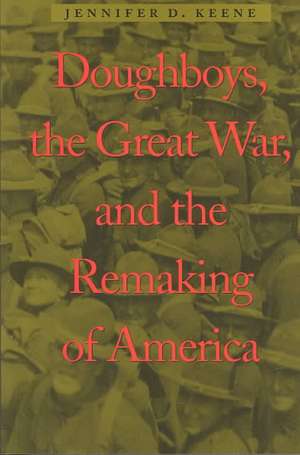Doughboys, the Great War and the Remaking of America: War/Society/Culture
Autor Keeneen Limba Engleză Paperback – 14 sep 2003
Preț: 243.19 lei
Nou
Puncte Express: 365
Preț estimativ în valută:
46.54€ • 48.29$ • 38.90£
46.54€ • 48.29$ • 38.90£
Carte tipărită la comandă
Livrare economică 18 martie-01 aprilie
Preluare comenzi: 021 569.72.76
Specificații
ISBN-13: 9780801874468
ISBN-10: 0801874467
Pagini: 312
Ilustrații: 15 halftones, 3 line drawings
Dimensiuni: 151 x 226 x 22 mm
Greutate: 0.45 kg
Editura: Johns Hopkins University Press
Seria War/Society/Culture
Locul publicării:Baltimore, United States
ISBN-10: 0801874467
Pagini: 312
Ilustrații: 15 halftones, 3 line drawings
Dimensiuni: 151 x 226 x 22 mm
Greutate: 0.45 kg
Editura: Johns Hopkins University Press
Seria War/Society/Culture
Locul publicării:Baltimore, United States
Notă biografică
Jennifer D. Keene is an associate professor of history at the University of Redlands in Redlands, California.
Descriere
She finds that the country and the conscripts-in their view-entered into a certain social compact, one that assured veterans that the federal government owed conscripted soldiers of the twentieth century debts far in excess of the pensions the Grand Army of the Republic had claimed in the late nineteenth century.












